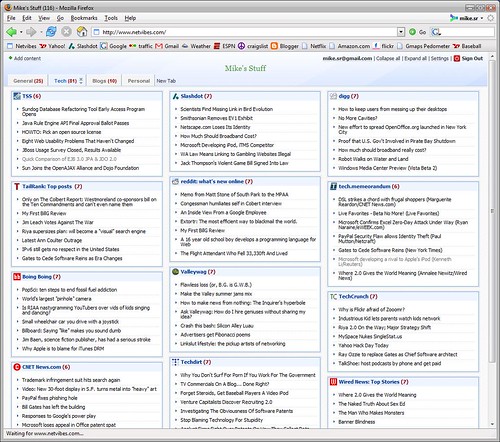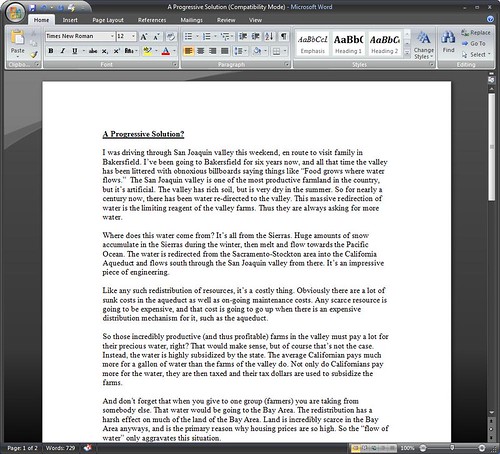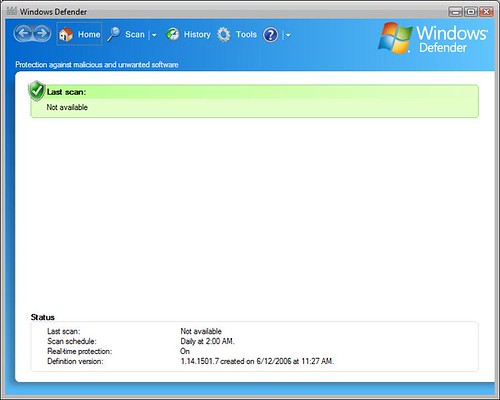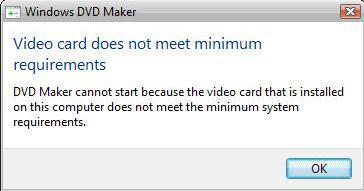I remember when the Court struck down a Texas law banning flag burning. I was incredibly happy. So was my father. My father served in the Air Force for 25 years, including three wars. He enlisted at the end of World War II. I remember him remarking to me "I didn't fight the Nazis just so they could come to power now."
So a showdown on this kind of issue is the ultimate litmus test. Are our leaders willing to trade away freedoms in exchange for jingoistic saber-rattling? Still I have to admit that I was pessimistic about this vote.
That pessimism grew a lot worse when I saw this op-ed article in USA Today from one of my senators, Dianne Feinstein. I'm a Democrat, but I dislike Democrats and Republicans both. Still I usually dislike Republicans more than I dislike Democrats. Why? You can usually count on Democrats to protect civil liberties, even though they can also be counted on to violate property rights. There was once a time when you might expect Republicans to do just the opposite, but now all you can really count on from Republicans is for them to take away civil liberties. They have done a terrible job of protecting property rights.
So why the hell is Feinstein supporting the Flag Protection Ammendment? I thought that maybe she had some kind of argument I had not thought of, so I read her op-ed. Nope. Typical nationalistic drivel:
Boy am I glad I didn't vote for her in the primary this year. I didn't vote for her then because she had voted for invading Iraq. Anyways, this incredibly disppointing. Maybe now I should assume that Democrats will not only abuse my property rights, but will also take away my civil liberties. After all Democrats proposed an alternative bill that would create all kind of situations where flag burning would be illegal.On the morning of February 24, 1945 — when I was a 12-year-old girl — I picked up a copy of the San Francisco Chronicle. On its cover, there was a full-page picture of the now iconic JoeRosenthal photograph of American marines raising the United States flag at Iwo Jima. For me and for the nation, the photograph was a jolt of electricity boosting our morale during the terrible island-to-island Pacific battles of World War II. The sight of those troops hoisting Old Glory forever cemented my view of our flag.
Maybe that's not fair. One Democrat had an eloquent argument against the bill:
"Our country's unique because our dissidents have a voice," said
Sen. Daniel Inouye, D-Hawaii, a World War II veteran who lost an arm in
the war and was decorated with the Medal of Honor. "While I take offense at disrespect to the flag," he said, "I nonetheless believe it is my continued duty as a veteran, as an American citizen, and as a United States senator to defend the
constitutional right of protesters to use the flag in nonviolent speech."
Sound like he and my dad would have gotten along pretty well. The ammendment failed, by one vote, with most of the nays coming from Democrats. But don't fear! The Republicans in the House voted in support of a bill that would prevent condo and homeowner associations form restricting how the flag can be displayed. It's great to see the Republicans have found a way to use nationalism to remove property rights...






